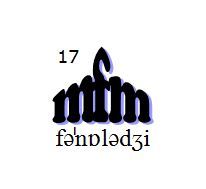
Manchester Phonology Meeting
This is an archive page; this conference occurred in May 2009.
The site for the 18mfm is available here.
 |
The 17th
Manchester Phonology Meeting |

|
With a special session
entitled...
featuring John Goldsmith, D. Robert Ladd
and Tobias Scheer |
|
Thursday 28th -
Saturday 30th May 2009
|
|
Held at Hulme Hall, Manchester
|
|
Organised through a collaboration of phonologists
at the University of
Edinburgh, the University
of Manchester, the Universite
Toulouse-Le Mirail and elsewhere.
|

programme + info
|| travel + accommodation ||
registration + booking ||
special session

 The full programme for the 17mfm is available here.
The full programme for the 17mfm is available here.
 The abstract booklet is available here.
The abstract booklet is available here.
 The list of participants is available here.
The list of participants is available here.
Notes for poster-presenters: The
poster displays will be set up on the evening before the relevant poster
session. You will have a space
of about 5' (wide) x 3'9" (high) (152 cm wide x 114 cm high) for your poster. Each
person presenting a poster will be provided with the means
to affix their posters to the display board. Please feel free
to bring handouts with you, so that those viewing your poster also have
something to take away. Posters in previous years have taken a wide variety of forms, and there
is no one single way to produce a good poster; the important things are that
the font size is not too small, that it is easily readable and does not have too much text on it, that it sets out
the main points that you want to argue for clearly, and maybe that it's eye
catching, too. Some presenters bring one big poster which takes up all the
space, others bring a series of A3 or A4 sheets of paper which can be fitted
together on the poster board. During the poster session, you will be asked to
stand by your poster (for at least a fair amount of the session) as conference
participants walk around the displays, read your posters and ask you questions
about them.

Registration
and booking
No more bookings can now be taken. If you would like to attend the 17mfm and have not booked, contact patrick.honeybone@ed.ac.uk.
All participants in the conference (apart from the invitees in the special session) need to book, and payment should be made before the conference.
The conference fee does not cover accommodation, which you will need to book yourself (please use the information on the accommodation page [link removed] to make your own arrangements).
Some of you will probably also want to stay in Manchester during the evening of Saturday (30th). For those that do, it might be nice to meet up for a post-conference meal. Jill Beckman has kindly agreed to organise a trip to a restaurant for the Saturday evening - this will be to the Genghis Khan's Mongolian barbecue restaurant in the centre of Manchester. If you would like to come along to the meal on the 30th, you will need to email Jill (jill-beckman@uiowa.edu) by 22nd May, with "Genghis Khan" in the subject line of your message.

Detailed information on accommodation possibilities and on how to get to the conference (with a selection of maps) are provided on separate pages:

Special session
A special themed session has been organised for Friday afternoon by
members of the organising committee and the advisory board. This will
feature invited
contributions and will conclude in an open discussion
session when contributions from the audience will be very
welcome. Unfortunately, Morris Halle has had to cancel his participation in the conference.
 John A. Goldsmith (University of Chicago)
John A. Goldsmith (University of Chicago)
 D. Robert Ladd (University of Edinburgh)
D. Robert Ladd (University of Edinburgh)
 Tobias Scheer (University of Nice)
Tobias Scheer (University of Nice)
Session description: The History of Phonological Theory

Organisers
Organising
Committee
The first named is the convenor and main organiser -
if you would like to attend or if you have any queries about the
conference, please feel free to get in touch with me
(patrick.honeybone@ed.ac.uk, or phone +44 (0)131 651 1838).
 Patrick
Honeybone (University
of Edinburgh)
Patrick
Honeybone (University
of Edinburgh)
 Ricardo
Bermudez-Otero (University
of Manchester)
Ricardo
Bermudez-Otero (University
of Manchester)
Advisory Board
 Adam Albright
(MIT)
Adam Albright
(MIT)
 Jill
Beckman (Iowa)
Jill
Beckman (Iowa)
 Bert
Botma (Leiden)
Bert
Botma (Leiden)
 Philip Carr
(Montpelier)
Philip Carr
(Montpelier)
 Mike
Davenport (Durham)
Mike
Davenport (Durham)
 Jacques
Durand (Toulouse-Le Mirail)
Jacques
Durand (Toulouse-Le Mirail)
 Daniel
L. Everett (Illinois State)
Daniel
L. Everett (Illinois State)
 Paul
Foulkes (York)
Paul
Foulkes (York)
 S.J.
Hannahs (Newcastle upon Tyne)
S.J.
Hannahs (Newcastle upon Tyne)
 John
Harris (UCL)
John
Harris (UCL)
 Kristine
A.
Hildebrandt (Southern Illinois)
Kristine
A.
Hildebrandt (Southern Illinois)
 Martin
Kramer (Tromso)
Martin
Kramer (Tromso)
 Yuni Kim (Manchester)
Yuni Kim (Manchester)
 Nancy Kula
(Essex)
Nancy Kula
(Essex)
 Ken
Lodge (UEA)
Ken
Lodge (UEA)
 Aditi
Lahiri (Oxford)
Aditi
Lahiri (Oxford)
 Marc
van Oostendorp (Meertens & Leiden)
Marc
van Oostendorp (Meertens & Leiden)
 Glyne
Piggott (McGill)
Glyne
Piggott (McGill)
 Catherine
O. Ringen (Iowa)
Catherine
O. Ringen (Iowa)
 Tobias Scheer
(Nice)
Tobias Scheer
(Nice)
 James M.
Scobbie (QMU)
James M.
Scobbie (QMU)
 Daniel
Silverman (San Jose State)
Daniel
Silverman (San Jose State)
 Christian
Uffmann (Sussex)
Christian
Uffmann (Sussex)
 Marilyn
M. Vihman (York)
Marilyn
M. Vihman (York)

The site is hosted
by the department of
Linguistics and English Language at the University of
Edinburgh.
Page created by Patrick
Honeybone
Last updated May 2009